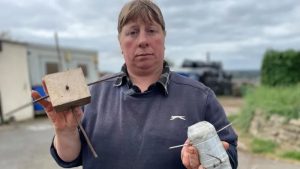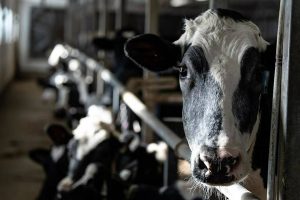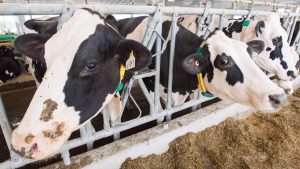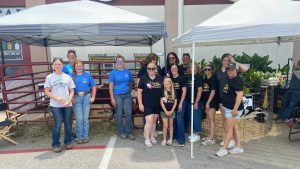
It was hailed as a game-changer for Alberta’s milk sector but three years on, construction of a first-of-its-kind dairy concentration facility has yet to begin.
“We thought the legal agreement, the regulatory oversight and the financing would take six to 12 months,” said Alberta Milk chair Stuart Boeve. “It wound up being two years so far.”
The producer-owned, $50-million Dairy Innovation West facility, announced in 2019 and initially expected to open last year, will remove water from raw milk and create concentrated components that processors can use for a variety of products.
The process cuts the volume by at least half and that, in turn, slashes the “disgustingly expensive” transport costs faced by Alberta dairy producers, said Boeve. Those costs have risen considerably because of higher diesel prices.
“The biggest rising cost is hauling interprovincially,” said Boeve, who farms near Taber. “We don’t control the plants. Sometimes they’re processing full bore and it all works great and sometimes they aren’t. My milk usually goes to Lethbridge (but) sometimes it goes to Vancouver.”
Most of the processing plants in the province are small and located a fair distance from Lacombe, Alberta’s dairy alley.
“Over the last number of years we’ve lacked processing in Alberta and haven’t been able to attract any,” said Boeve. “We haul milk 12 hours right now both east and west. … If you could cut half the loads, that’s a huge savings.
“Depending on where you’re going, you could actually take one load out of three loads of (non-condensed) milk. So obviously the payback is way faster.”
While the savings would be substantial, getting the Dairy Innovation West facility built has proven to be more complicated than expected.
It is partly because the facility will be owned by the five milk marketing boards in Western Canada – Alberta Milk, SaskMilk, Dairy Farmers of Manitoba, B.C. Milk and B.C. Dairy – that collectively make up the Western Milk Pool. The main business of marketing boards is to control and regulate milk production and activities such as milk transportation and storage, so owning a processing facility would be new.
“Our oversight bodies get very nervous when we start trying to use producer money to build something like this,” said Boeve. “Then you’ve got the financing agreement. You can imagine if you’re the bank, if this thing gets two-thirds done and then something falls apart, they’re pretty exposed. They basically have a mortgage on something that doesn’t have much value.
“That’s really where it’s hung up: lawyers and accountants and the bank.”
However, the sector remains committed to the project.
The five dairy boards recently announced a “transformation” of the Western Milk Pool, pledging to work more closely together. Topping their list of priorities was getting the Dairy Innovation West facility built.
There are more than 100 dairy processors in Western Canada, ranging from “large, multinational corporations making virtually any type of dairy product you can imagine to small, on-farm operations making just one or two highly specialized products,” says the website of the Western Dairy Council. Collectively, they process more than two billion litres of milk annually.
But while processing capacity in the West is developing, relatively little of it is happening in Alberta, Boeve said.
“Processors are building in other places in Western Canada and obviously because we’re footing the bill for hauling the milk there,” he said. “That’s the first reason we want to put up the (facility).”
Once built, the plant is expected to process 300 million litres of milk per year. When it was announced three years ago, Alberta Milk said it would be built in the Red Deer-Lacombe area on a 20-acre site. The facility would need nine acres and it was hoped milk processors would set up shop nearby.
Boeve said he is optimistic the project will soon get past the financing and regulatory hurdles. Once that happens, it won’t take long to have the facility up and running, he added.
“It’ll be ready 18 months after we get started.”

























